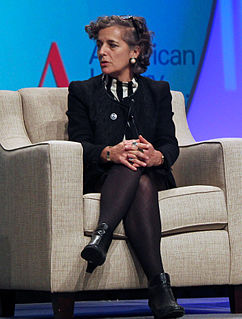A Quote by Angela Carter
I think the adjective post-modernist really means mannerist. Books about books is fun but frivolous.
Related Quotes
Only idiots or snobs ever really thought less of 'genre books' of course. There are stupid books and there are smart books. There are well-written books and badly written books. There are fun books and boring books. All of these distinctions are vastly more important than the distinction between the literary and the non-literary.
Naming is like putting a stamp on something and fixing it. A kind of formaldehyde sort of fixation, but it becomes dead, sitting there forever, frozen. So, I'm not a great one for these modernist, post modernist, post colonial labels. I think they serve certain purpose. You do need some kind of sign post here and there, but it can also become an end in itself.
Then I celebrated my Wall of Books. I counted the volumes on my twenty-foot-long modernist bookshelf to make sure none had been misplaced or used as kindling by my subtenant. “You’re my sacred ones,” I told the books. “No one but me still cares about you. But I’m going to keep you with me forever. And one day I’ll make you important again.” I thought about that terrible calumny of the new generation: that books smell.
I think the books are the books. They were conceived as books. They weren't conceived as movies. When I write scripts, that's an idea and a situation that I think is a really good idea for a movie. When I'm writing a book, I'm not thinking, "Oh, this would be a great movie." This would be a very interesting book. And I think the books are things that cannot really be adapted into another medium.
I know what I as an editor respond to is a voice. A voice is not just a stylistic thing, but it means someone who really has something to say. I think a lot of what I get from books - whether they be books of comics or books of literature - is a window into somebody's mind and their way of thinking. Somehow, I can recognize some of my feelings in seeing somebody who is actually expressing their own inner reality.







































